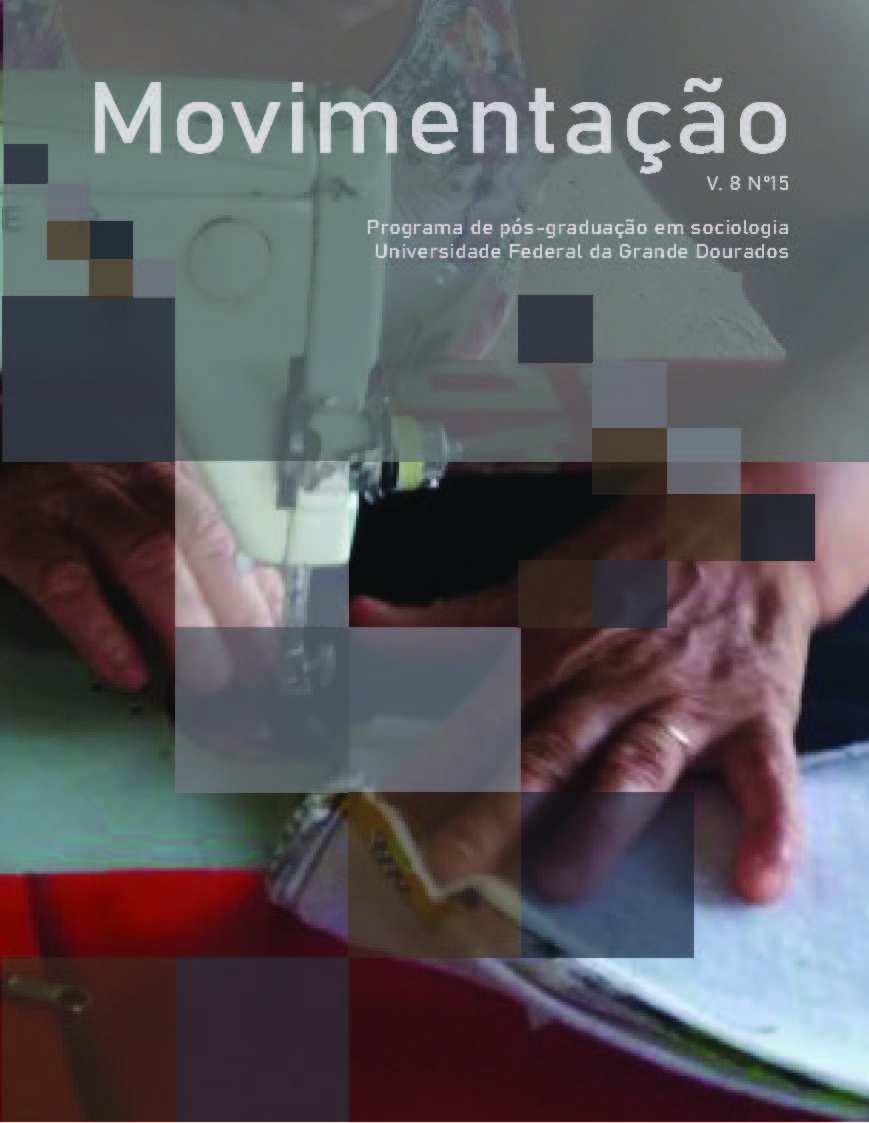Direitos constitucionais para seguridade e reconhecimento do trabalho e das/os trabalhadoras/es domésticas
DOI:
https://doi.org/10.30612/mvt.v8i15.15459Keywords:
Empregados Domésticos. Lei complementar. Mulheres Negras.Abstract
A Lei Complementar N° 150 de 01 de junho de 2015 assegura garantias de direitos às trabalhadoras e trabalhadores domésticos. Com este estudo bibliográfico objetivou-se verificar mudanças sociais que a implementação da Lei possibilitou para essa classe trabalhadora, que juridicamente, padeceu com a falta de direitos e de reconhecimento da sociedade. Observando a trajetória e evolução dos direitos trabalhistas e analisando dados da PNAD/2018 foi fundamental para reflexão sobre os itens indexados com a implementação da Lei, tecendo os deveres e obrigações nos quesitos como o contrato de trabalho, a remuneração, hora extra, trabalho noturno, férias, previdência social, dentre outros. Verificamos que mesmo havendo garantia constitucional as trabalhadoras domésticas não tinham seus direitos regulamentados, o que gerou profundos prejuízos, principalmente para as mulheres negras. Nesse sentido, conclui-se que a regulamentação da Lei é fundamental para combater as desigualdades sociais dessa categoria, além de representar um papel importante na desconstrução de um imaginário social que associa as mulheres negras à subalternidade.
Downloads
References
BRASIL. Lei Complementar 150 de 1ª de junho de 2015. Disponível em: <http://www.planalto.gov.br/ccivil_03/leis/LCP/Lcp150.htm>. Acesso em: 06 jun. 2021.
________. Lei 5.859 de 11 de dezembro de 1972. Disponível em: <http://www.planalto.gov.br/ccivil_03/leis/L5859.htm>. Acesso em: 06 jun. 2021.
DAVIS, Ângela. Cap. I – O legado da Escravidão: paramêtros para uma nova condição de mulher. In.: Mulheres, Raça e Classe. São Paulo: Boimtempo, 2016.
FRANCO, Aline Fonseca; Costa, Juliane Nagafugi de Souza; Silva, Wesley Aparecido. Doméstico: da origem escravista à igualdade de Direitos. Universidade do Oeste Paulista – UNOESTE, curso de Direito, Presidente prudente, SP.
GOMES, Daniela Vasconcelos. A importância da Lei complementar N°150/2015 para efetividade da dignidade humana do trabalhador doméstico. ev. TST, Brasília, vol. 83, n° 1, jan/mar 2017 p. 235 – 277.
GONZALEZ, Lélia. Racismo e sexismo na cultura brasileira. Revista Ciências Sociais Hoje, Anpocs, 1984, p. 223-244.
GUIMARÃES, Antônio Sérgio Alfredo. Como trabalhar com "raça" em sociologia. Educação e Pesquisa, São Paulo, v.29, n.1, p. 93-107, jan./jun. 2003.
Instituto Brasileiro de Geografia e estatística – IBGE. Pesquisa Nacional por Amostra de Domicílios Contínua. Notas técnicas Versão 1.6. Rio de Janeiro, 2019.
IPEA, Texto para discussão / Instituto de Pesquisa Econômica Aplicada. Brasília: Rio de Janeiro: Ipea, 1990- ISSN 1415-4765 1. Brasil. 2. Aspectos Econômicos. 3. Aspectos Sociais. I. Instituto de Pesquisa Econômica Aplicada, 2019.
Lei Nº 4.090, de 13 de julho de 1962. Disponível em: http://www.planalto.gov.br/ccivil_03/leis/l4090.htm. Acesso em: 26 set. 2021.
Lei N°7.418, de 16 de dezembro de 1985. Disponível em: http://www.planalto.gov.br/ccivil_03/leis/l7418.htm. Acesso em: 29 set. 2021.
Lei N° 11.324 de 19 de julho de 2006. http://www.planalto.gov.br/ccivil_03/_ato2004-2006/2006/lei/l11324.htm. Acesso em: 29 set. 2021.
MARTINS, Adalberto. A nova realidade do trabalho doméstico. Revista do Tribunal Regional do Trabalho da 2ª Região, n. 15, p. 36-46, 2014.
MOLINA, Helder. História do sindicalismo. Curitiba: SINDISEAB, 2017. Disponível em: http://www.sindiseab.org.br/assets/uploads/download/Hist%C3%B3ria%20do%20Sindicalismo.pdf Acesso em: 15-07-2021.
ORGANIZAÇÃO INTERNACIONAL DO TRABALHO. Conferência Internacional do Trabalho 2011: a OIT realiza a segunda rodada de discussões sobre o tema trabalho decente para as/os trabalhadoras/ os domésticas/os. Brasília, 2011. Série Trabalho Doméstico Remunerado no Brasil, n. 4.
SCOTT, J. Prefácio Gender and Politics of History. Cadernos Pagu, n. 3, Campinas, Núcleo de Estudos de Gênero, 1994. Disponível em: https://periodicos.sbu.unicamp.br/ojs/index.php/cadpagu/article/view/1721. Acesso em: 26 nov. 2021.
https://www2.senado.leg.br/bdsf/handle/id/243315 Acesso em: 8 jun. 2021
https://www.ipea.gov.br/portal/index.php?option=com_content&view=article&id=35255&Itemid=9. Acesso em: 18-04-2021
https://www.gov.br/esocial/pt-br/documentacao-tecnica/manuais/cartilha-trabalhadores-domesticos-direitos-e-deveres. Acesso em: 02 jun. 2021
https://www2.camara.leg.br/legin/fed/declei/1940-1949/decreto-lei-3078-27-fevereiro-1941-413020-publicacaooriginal-1-pe.html. Acesso em: 02 jun. 2021
http://www.planalto.gov.br/ccivil_03/constituicao/constituicao.htm . Acesso em: 02 jun. 2021.
http://www.normaslegais.com.br/legislacao/Lei-complementar-150-2015.htm . Acesso em: 02 jun. 2021.
https://www2.senado.leg.br/bdsf/handle/id/243315. Acesso em: 8 jun. 2021.
https://www2.senado.leg.br/bdsf/handle/id/243315. Acesso em: 8 jun. 2021.
http://www.planalto.gov.br/ccivil_03/constituicao/emendas/emc/emc72.htm. Acesso em: 30 set. 2021.
Downloads
Published
How to Cite
Issue
Section
License
Authors must accept the publication rules when submitting the journal, as well as agree to the following terms:
(a) The Editorial Board reserves the right to make changes to the Portuguese language in the originals to maintain the cultured standard of the language, while respecting the style of the authors.
(b) Authors retain the copyright and grant the journal the right to first publication, with the work simultaneously licensed under the Attribution-NonCommercial-ShareAlike 3.0 Brazil (CC BY-NC-SA 3.0 BR) that allows: Share - copy and redistribute the material in any medium or format and Adapt - remix, transform, and create from the material. CC BY-NC-SA 3.0 BR considers the following terms:
- Attribution - You must give the appropriate credit, provide a link to the license and indicate whether changes have been made. You must do so under any reasonable circumstances, but in no way that would suggest that the licensor supports you or your use.
- NonCommercial - You may not use the material for commercial purposes.
- Sharing - If you remix, transform, or create from material, you must distribute your contributions under the same license as the original.
- No additional restrictions - You may not apply legal terms or technological measures that legally restrict others from doing anything that the license permits.
(c) After publication, authors are allowed and encouraged to publish and distribute their work online - in institutional repositories, personal page, social network or other scientific dissemination sites, as long as the publication is not for commercial purposes.



